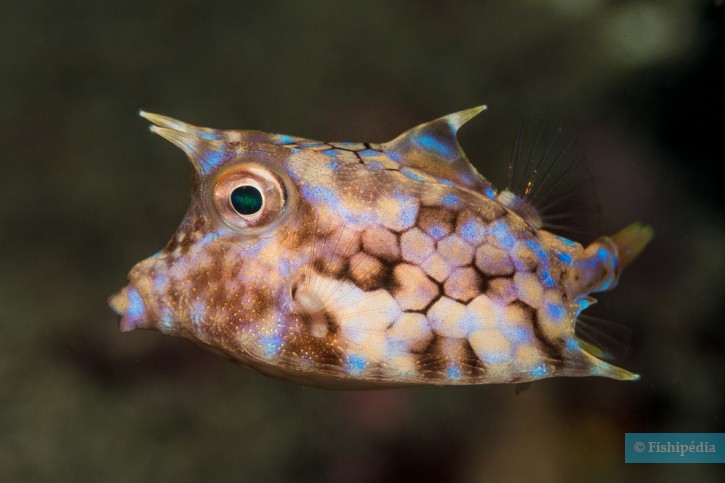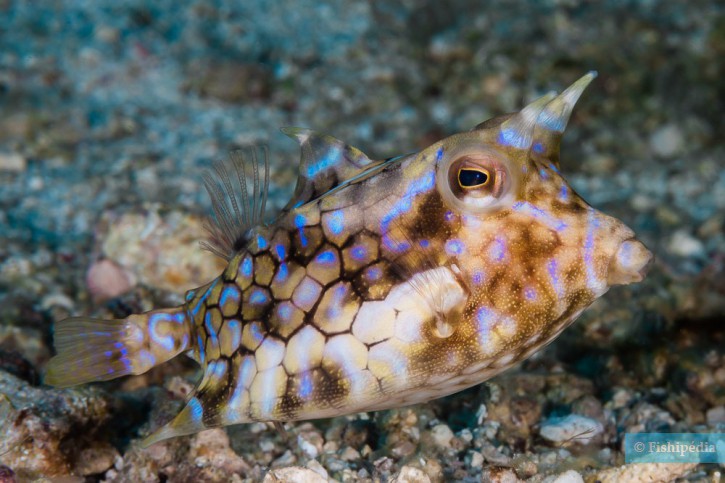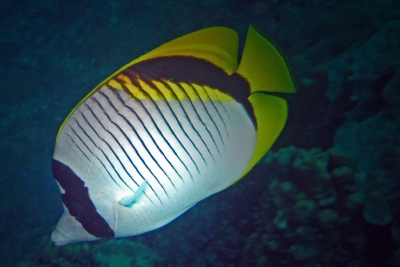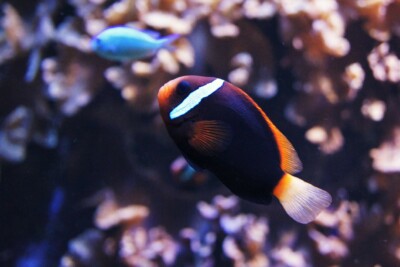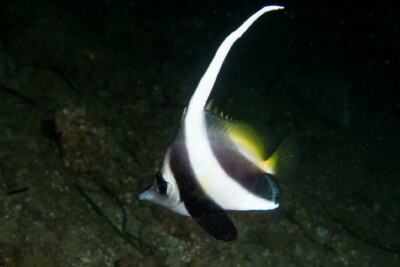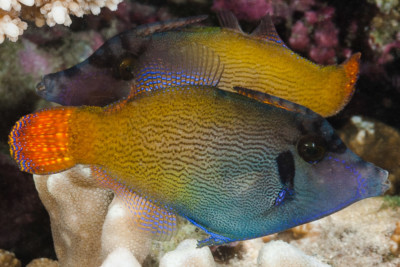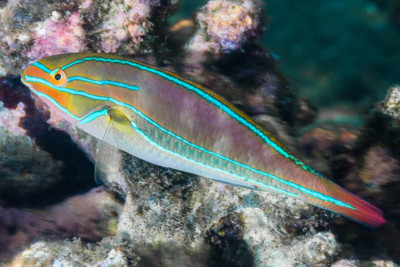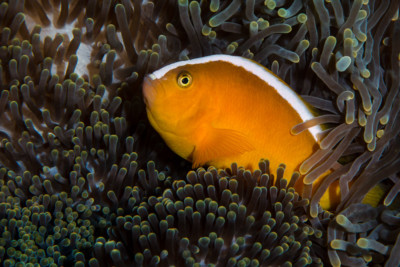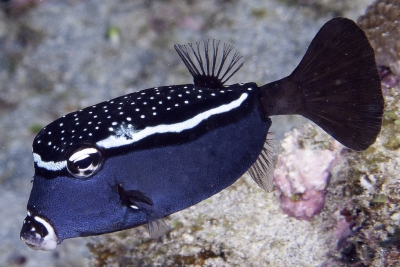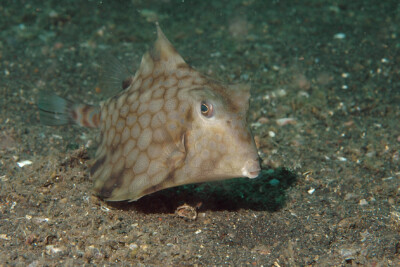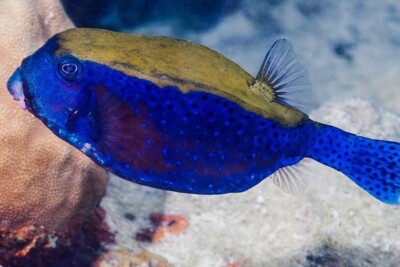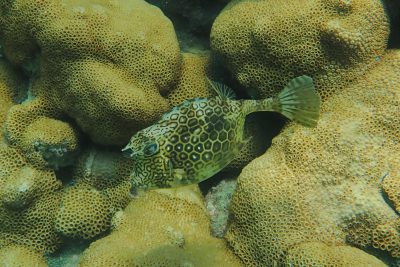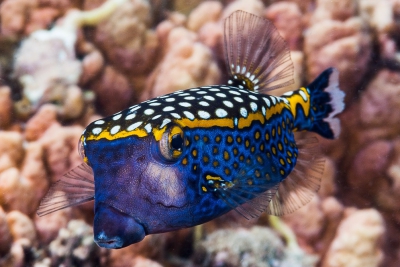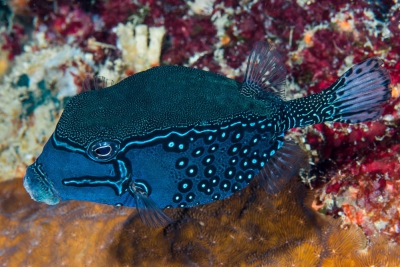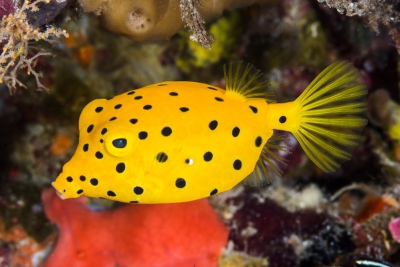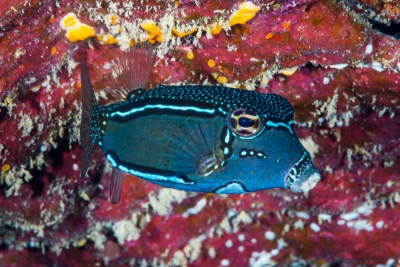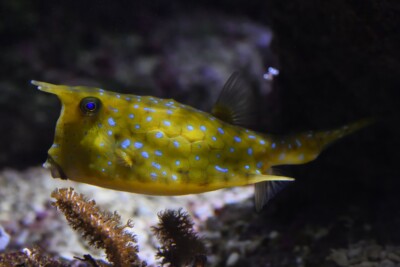Lactoria fornasini
| Scientific name | Lactoria fornasini |
|---|---|
| Descriptor | Bianconi |
| Year of description | 1846 |
| IUCN category (World) | LC |
| Family | Ostraciidae |
| Genus | Lactoria |
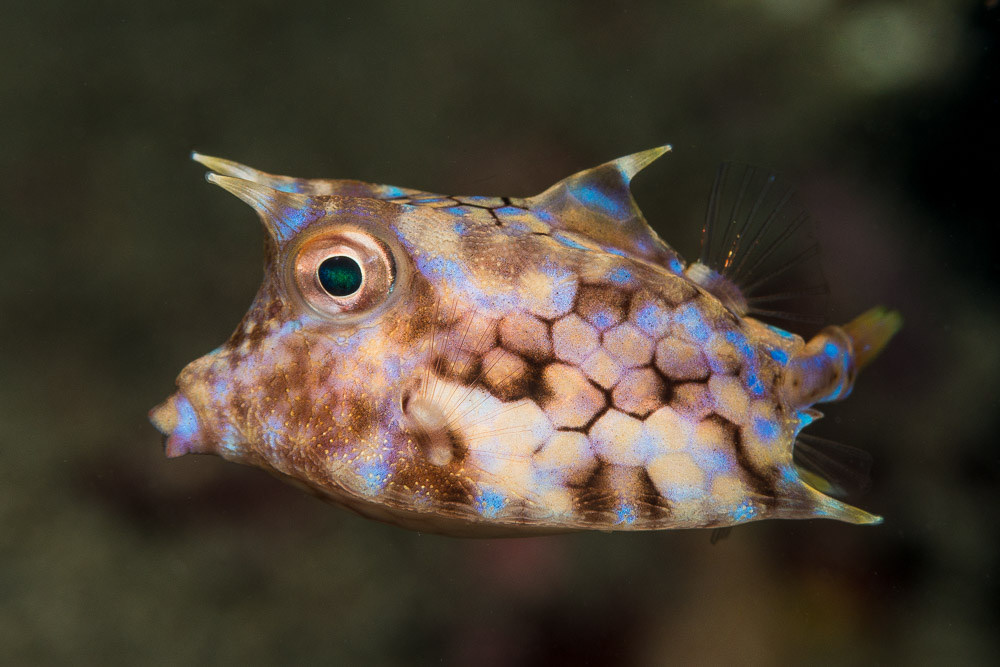

Introduction
Lactoria fornasini is a salt water fish.
This sheet is currently being prepared. The texts currently proposed come from our data model or are being drafted. To request priority for this content, you can write to us HERE.
Who is it?
Morphology
-
Average size20 cm
-
Maximum size23 cm
-
Longevity10 year
-
ShapeBalloon and near
-
Patterndrawn scales
-
Average size20 cm
-
Maximum size23 cm
-
Longevity10 year
-
ShapeBalloon and near
-
Patterndrawn scales
How to recognize This fish ?
Lactoria fornasini measures around 20 cm. The dominant males can however reach 23 cm. This fish is bicolore with a predominantly bleu and marron body. The also has marron drawn scales.
Sexual dimorphism
The adult male is bigger than the female.
Behaviour & Life cycle
-
dietomnivorous with herbivorous tendency
-
Sociabilitysolitary
-
territorialNo
-
Way of livingdiurnal
Tetrodotoxin or TTX is a neurotoxin produced by bacteria. In this species, it is present in large quantities in the liver, viscera and gonads but is also found in the skin.
Females are more toxic than males, this is due to the high concentration of TTX in the ovaries.
When poisoned, TTX is fatal in more than 50% of cases. This neurotoxin acts on the pores of the sodium channels, which stops the passage of nerve impulses, resulting in partial or total paralysis. Death is most often due to respiratory paralysis triggering cardiac arrest by collapse.
Lactoria fornasini is a fish solitary naturally found at mid-depth and near the bottom. This species is omnivorous with herbivorous tendency .
n general, this species does not care much about other animals crossing its path. However, she may show some signs of aggression with conspecifics.
Reproduction
-
Reproductionovipare qui pond en eau libre
-
Hermaphroditeprotogynous
Lactoria fornasini is a fish ovipare qui pond en eau libre. always born female. Growing up, individuals will change sex to become male, this is called successive hermaphroditism of the protogynous type.
Harmless species
This species does not represent any particular threats to humans when encountered in its natural environment.
Origin and distribution

Conservation status of populations (IUCN)
What is its habitat?
Natural environment characteristics
-
Temperature22 - 28 °C
-
Depth5 - 130 m
-
FlowMedium and Slow
Biotope presentation
Lactoria fornasini is most often found at a depth between 5m and 130m. However, it is not impossible to find this species at other depths.
Species of the same biotope
To go further
Sources & Contributions
Participation & Validation
The Fishipedia team and specialist contributors are committed to providing high-quality content. However, although the information comes from scientific sources or testimonials from specialists, the cards may contain inaccuracies.

Benoit Chartrer

Patrick Chartrer
Translation
Translation done with the valuable contribution of our translators, who make this information available to a wider audience. We sincerely thank them for their commitment.
Scientific partners
Tags
Species of the same family
Same genus
Species of the same biotope
